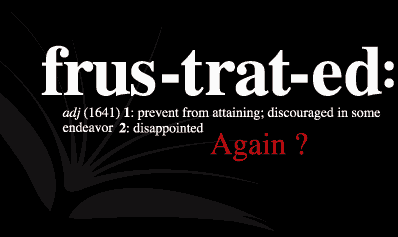Many times I come across a consultant who is frustrated by self-funding patients not paying.
This is often followed by a reference to numerous reminders and sometimes even final demands being sent in vain to the patient.
Despite all this, no payment has been received and the invoice remains outstanding.
I’ve always found this curious as I have very few problems with self-funding patients.
Reasons why.
Firstly, I make sure the invoice that is sent out is absolutely correct. The address is verified with the post office (the address and the postcode is checked against the Post Office “Postcode finder”).
It’s free and saves me worrying if the details are correct.
Secondly, if the invoice is unpaid after a set length of time I telephone the patient.
Thirdly and finally, I take debit or credit card payments.
None of the above are exactly rocket science but if you strip down each stage you remove many of the reasons for a self-funding patient not to pay.
Precision
If you take each, in turn, starting with validation of the address, this removes the potential for the invoice to be returned undelivered.
For example: how confident are you the address quoted is 100% complete and accurate.
There are many occasions when an address has been shorted or a digit incorrect used in a postcode. It takes all of 30 seconds to check everything is as it should be.
If it is NOT, then the opportunity to get it right presents itself. If you send an invoice out incorrectly addressed, and believe you me I’ve seen.
An accident waiting to happen
Permit me to give you an example of something that was actually mailed to me and never delivered recently because the postcode was wrong.
It was a digit out.
That doesn’t seem to be much of a mistake but it was enough to cause a failed delivery.
The first I knew about it was when I called the sender to ask where the expected correspondence was.
How many self-funders are going to call and ask where the bill is?
Some might but good luck expecting that to help reduce the number of outstanding invoices for self-funding patients.
Pick the telephone up.
By actually speaking to the patient two things are pretty much going to happen. You are either going to get paid or you are going to find out why the invoice hasn’t been paid.
For example, the patient will either agree to pay there and then or, as in the latter case, explain they are insured. Or they thought the payment would be taken from the debit card swiped upon registration.
It doesn’t really matter what the reason is.
What matters is that I’ve been able to identify a problem.
And then sort it.
Debit Cards
Sorting it brings us neatly to the third reason my clients don’t suffer from excessive issues with self-funding patients. I take debit and credit card payments for them.
There is a telephone number on the invoices I send out to use if the patient wants to make a card payment.
Or in the event, I have to speak to a patient I always ask for a card payment. 99.9% of the population have debit and/or credit cards.
Thus the patient is encouraged to clear my client’s account whilst on the phone.
Of course, there may be issues such as the patient genuinely believes the hospital have taken payment or the patient wants to check something.
Not a problem with any of that save it needs resolving within a maximum of 36 / 48 hours because my client hasn’t been paid.
None of the above is bullying or harassing the patient; quite the reverse in fact.
It confirms not only is the consultant a professional but he/she has an equally professional administrative function within the practice.
pete@medicalhealthcaremanagement.co.uk

